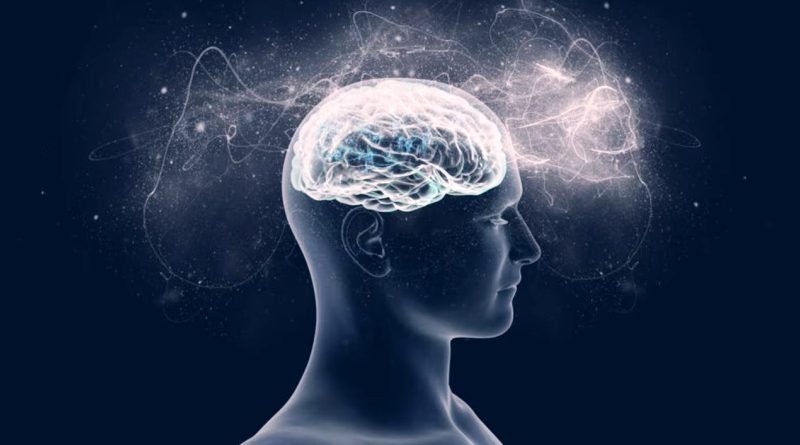Do you know about Mental Health?
Introduction of Mental Health
Mental health refers to the overall state of emotional, psychological, and social well-being of an individual. It is an essential aspect of a person’s life, and it plays a significant role in their ability to cope with stress, interact with others, and make meaningful contributions to society. Mental health disorders can affect anyone regardless of age, race, gender, or socioeconomic status. They can also have a profound impact on an individual’s quality of life and ability to function.
The Importance of Mental Health
Mental health is essential for several reasons. First, it influences how we perceive the world around us and our ability to interact with others. Good mental health enables us to develop healthy relationships, communicate effectively, and resolve conflicts constructively. It also allows us to experience positive emotions such as joy, love, and happiness, which are vital for our overall well-being.
Second, mental health is critical for our physical health. Mental health disorders can cause physical symptoms such as fatigue, headaches, and gastrointestinal problems. They can also lead to chronic health conditions such as heart disease, diabetes, and obesity. Therefore, maintaining good mental health is essential for preventing and managing physical health problems.
Third, mental health is crucial for our productivity and ability to contribute to society. Mental health disorders can interfere with our ability to work, attend school, and participate in daily activities. They can also lead to financial difficulties, social isolation, and decreased quality of life. By prioritizing mental health, individuals can improve their productivity, job satisfaction, and overall well-being.
Common Mental Health Disorders
Several types of mental health disorders affect people worldwide. The following are the most common mental health disorders:
Depression: Depression is a mood disorder characterized by persistent sadness, loss of interest or pleasure, and feelings of worthlessness or hopelessness. It can affect a person’s ability to function, work, and engage in daily activities.
Anxiety disorders: Anxiety disorders are a group of mental health disorders characterized by excessive fear or worry. They can include generalized anxiety disorder, panic disorder, social anxiety disorder, and phobias. Anxiety disorders can affect a person’s ability to work, attend school, and participate in daily activities.
Bipolar disorder: Bipolar disorder is a mood disorder characterized by alternating episodes of depression and mania or hypomania. It can affect a person’s ability to function, work, and engage in daily activities.
Schizophrenia: Schizophrenia is a severe mental health disorder characterized by a breakdown in thought processes, emotions, and behavior. It can affect a person’s ability to function, work, and engage in daily activities.
Eating disorders: Eating disorders are a group of mental health disorders characterized by abnormal eating habits and behaviors. They can include anorexia nervosa, bulimia nervosa, and binge-eating disorder. Eating disorders can affect a person’s physical and mental health, and they can be life-threatening.
Treatment for Mental Health Disorders
Mental health disorders can be treated with various approaches, including medication, psychotherapy, and lifestyle changes. The following are some common treatments for mental health disorders:
Medication: Medications can be used to treat several mental health disorders, including depression, anxiety disorders, bipolar disorder, and schizophrenia. These medications can help reduce symptoms and improve overall functioning.
Psychotherapy: Psychotherapy is a type of talk therapy that can help individuals with mental health disorders. It can include cognitive-behavioral therapy, interpersonal therapy, and psychoanalytic therapy. Psychotherapy can help individuals learn coping skills, improve communication, and develop healthier relationships.
Lifestyle changes: Lifestyle changes can also improve mental health. These changes can include regular exercise, healthy eating, and getting enough sleep. Individuals can also
In addition to the above treatments, there are also several complementary and alternative therapies that may be helpful for individuals with mental health disorders. These can include mindfulness meditation, yoga, acupuncture, and herbal remedies. However, it is important to consult with a healthcare professional before trying any complementary or alternative therapies, as some may interact with medications or be harmful in certain situations.
Prevention of Mental Health Disorders
Preventing mental health disorders is essential for promoting overall well-being and reducing the burden of mental illness. The following are some strategies that can help prevent mental health disorders:
Early intervention: Early identification and treatment of mental health disorders can help prevent them from becoming more severe or chronic. It is essential to seek help if you or someone you know is experiencing symptoms of a mental health disorder.
Building resilience: Resilience refers to the ability to adapt and cope with stress and adversity. Building resilience can help individuals better manage stress and prevent mental health disorders. Strategies for building resilience can include social support, positive self-talk, and stress management techniques.
Healthy lifestyle habits: Healthy lifestyle habits, such as regular exercise, healthy eating, and getting enough sleep, can help prevent mental health disorders. These habits can also improve overall physical health and well-being.
Mindfulness practices: Mindfulness practices, such as meditation and yoga, can help individuals manage stress and improve their overall well-being. These practices can also help prevent mental health disorders by promoting a sense of calm and relaxation.
Avoiding substance abuse: Substance abuse can increase the risk of mental health disorders. Avoiding alcohol and drug use, or seeking help if you have a substance abuse problem, can help prevent mental health disorders.
Mental Health Stigma
Despite the prevalence of mental health disorders, there is still a significant stigma attached to these conditions. Mental health stigma refers to the negative attitudes, beliefs, and behaviors that individuals with mental health disorders may experience. Stigma can make it difficult for individuals to seek help, receive adequate treatment, and integrate into society. It can also lead to social isolation, discrimination, and other negative outcomes.
Reducing mental health stigma is essential for improving overall well-being and increasing access to mental health care. Strategies for reducing stigma can include education and awareness campaigns, anti-stigma programs, and the promotion of positive messages about mental health. It is also important for individuals to speak openly about their mental health experiences and advocate for better mental health care.
Conclusion: Mental health is a critical aspect of overall well-being, and mental health disorders can have a significant impact on individuals’ lives. However, with appropriate treatment and prevention strategies, individuals can manage their mental health and improve their quality of life. It is essential to reduce mental health stigma and increase access to mental health care to promote overall well-being and a healthy society.





